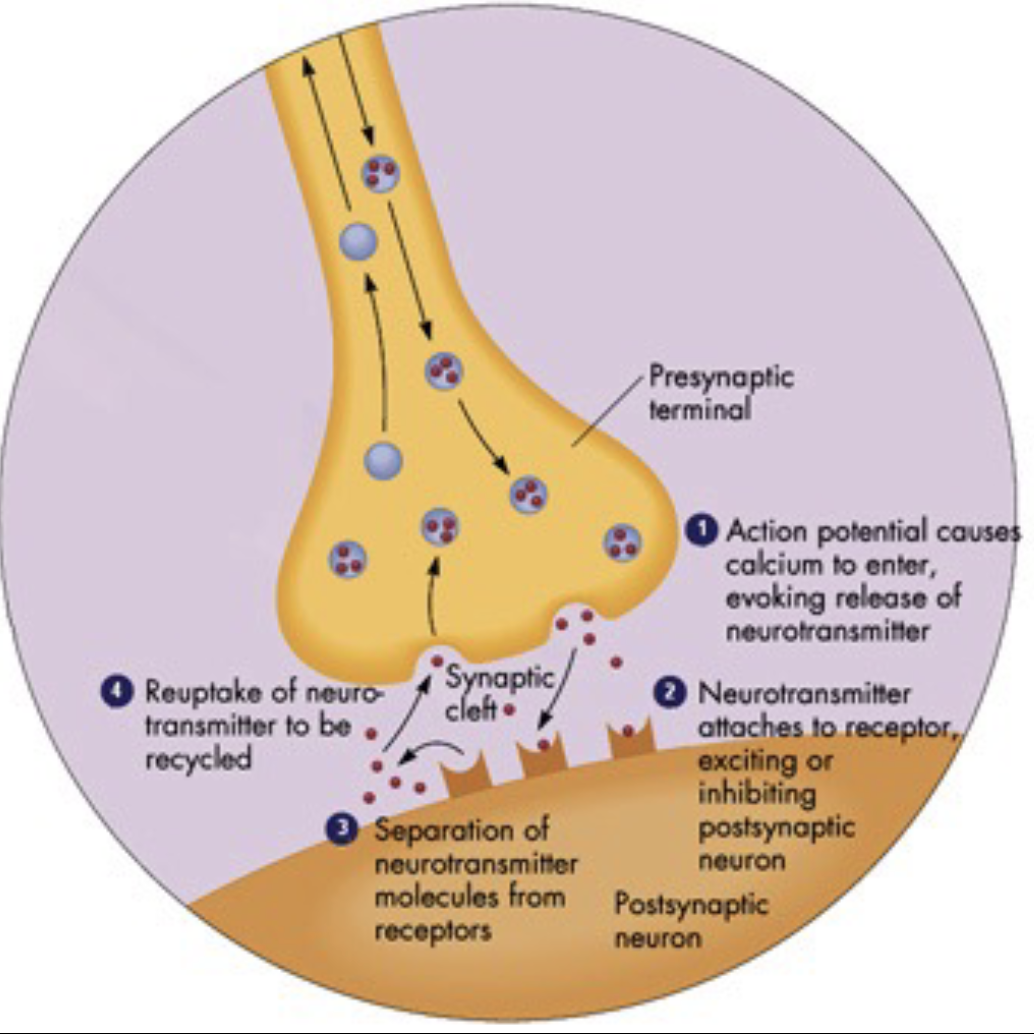Week 11 | Day 2 | PSYA02
Week 11 | Day 2 | PSYA02
*Finishing off from 2 lectures ago (last lecture was guest speaker)
Anti-Depressant Medication
- Anti-depressants also discovered somewhat accidentally
- Three major classes of Anti-Depressants
- Monoamine oxidase inhibitors
- Used to treat tuberculosis in the 1950s, coincidentally elevated patients mood
- Prevented breakdown of serotonin and dopamine
- Prescribed as a last resort because they have dangerous food and drug interactions

- Used to treat tuberculosis in the 1950s, coincidentally elevated patients mood
- Most anti-depressant medications today are reuptake inhibitors
- Prevent neurotransmitters from being taken back up
- Increase concentration of these neurotransmitters in the synaptic space
- Reuptake inhibitors can work on many neurotransmitters or just one
- Tricyclic Anti Depressants
- First widely accepted medication for treating depression for years
- Serotonin and Norepinephrine (SNRIs)
- First widely accepted medication for treating depression for years
- Selective Serotonin Reuptake Inhibitors
- Most commonly prescribed anti-depressants today
- Serotonin only (SSRIs
- Most commonly prescribed anti-depressants today
Other Physiological Interventions
- Electroconvulsuce Therapy (ECT)
- Induces controlled seizures
- Highly effective and safe (in modern times)
- Not permanent (needs to be repeated often)
- Transcranial Magnetic Stimulation (TMS)
- Produces longer-lasting changes to brain chemistry)
- Deep Brain Stimulation (DBS)
- Embedded electrodes produce repetitive brain stimulation
— New Lecture —
What Is Stress?
Stress: physical and psychological responses to internal/external stressors
Stressors: internal/external circumstances and/or stimuli that represent a perceived potential for harm, loss, damage, challenge, or other deviation from a balanced state
Good vs Bad Stress
- Hans Selye: “Father of Stress Research” and coined the term stress
- Types of stressors:
- Eustress: reaction to good stress
- Distress: reaction to bad stress